Woodlake changed my life. The staff there was very good to me and worked with me whenever I needed anything. Kevin James tells you exactly what you need to hear, and the people who can’t handle that sadly are probably just not ready to change their ways. Going to Woodlake ...
About Woodlake Addiction Recovery Center
The center has an incredible intensive outpatient and general outpatient program but its detox and residential treatment programs are often recommended by past patients. So, if you value an institution based on real past experience then you might want to consider these programs at Woodlake.
Their medical and ambulatory detox program is likely the first place you’ll want to begin your addiction recovery journey. This program is best suited for those who need medically supervised detox and FDA approved withdrawal and craving management medications. This program includes a comprehensive assessment and education on 12 step recovery and the causes of addictions.
After detox, you can then enroll in the inpatient residential program which is broken up into four distinct phases, each focusing on a different part of substance abuse recovery. These phases will help you get to the root cause of your substance addiction and teach you how to avoid relapse and remain on the path to long term sobriety. You should eexpect individual and group therapy and 12-step involvement.
Those wanting to learn what works best for them and the programs that would benefit them the most should consider this center. It’s well respected in the community for going the extra mile and for creating a safe environment for recovery.
Latest Reviews
Rehab Score
Gallery
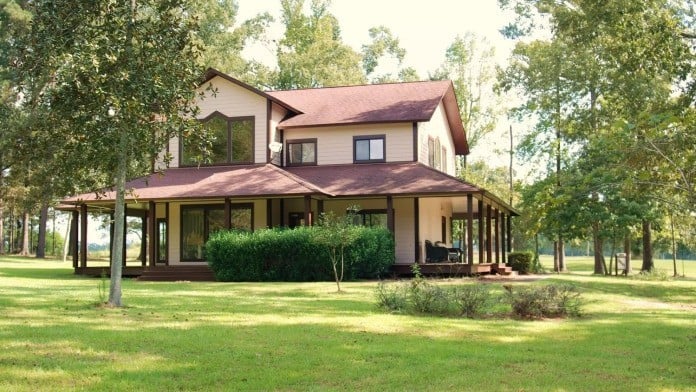
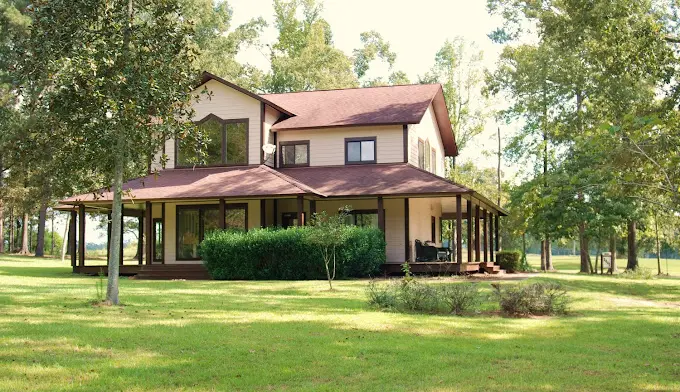
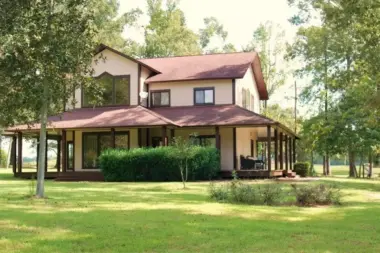
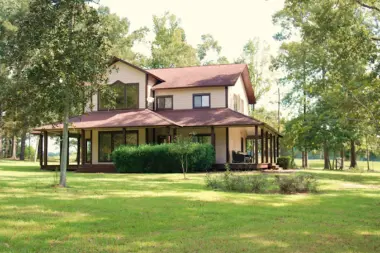
Accepted Insurance
Other Forms of Payment
Self-pay involves paying for treatment out of your own pocket. You can use savings or credit, get a personal loan, or receive help from family and friends to fund your treatment. If you don't have insurance or your insurance plan doesn't cover a specific program, self-pay can help ensure you still get the care you need.
Private insurance refers to any kind of healthcare coverage that isn't from the state or federal government. This includes individual and family plans offered by an employer or purchased from the Insurance Marketplace. Every plan will have different requirements and out of pocket costs so be sure to get the full details before you start treatment.
Financial aid can take many forms. Centers may have grants or scholarships available to clients who meet eligibility requirements. Programs that receive SAMHSA grants may have financial aid available for those who need treatment as well. Grants and scholarships can help you pai for treatment without having to repay.
Medicare is a federal program that provides health insurance for those 65 and older. It also serves people under 65 with chronic and disabling health challenges. To use Medicare for addiction treatment you need to find a program that accepts Medicare and is in network with your plan. Out of pocket costs and preauthorization requirements vary, so always check with your provider.
Military members, veterans, and eligible dependents have access to specific insurance programs that help them get the care they need. TRICARE and VA insurance can help you access low cost or no cost addiction and mental health treatment. Programs that accept military insurance often have targeted treatment focused on the unique challenges military members, veterans, and their families face.
Medicaid is a state based program that helps lower-income individuals and families pay for healthcare. Medicaid covers addiction treatment so those enrolled can use their coverage to pay for rehab. When a program accepts Medicaid the client often pays very little or nothing out of their own pocket.
Addiction Treatments
Levels of Care
In order to withdraw from certain substances and for patients that have been using an addictive substance for a longer period of time, it may be necessary for patients to undergo medically supervised detoxification Woodlake will administer the appropriate medications to prevent severe withdrawal symptoms. At an appropriate time during the detoxification process Woodlake’s professional staff will conduct a comprehensive assessment and evaluation to determine the best level of treatment for the individual client. During this phase of treatment patient’s are introduced to educational information about the disease of addiction and 12-Step recovery.
Residential treatment programs are those that offer housing and meals in addition to substance abuse treatment. Rehab facilities that offer residential treatment allow patients to focus solely on recovery, in an environment totally separate from their lives. Some rehab centers specialize in short-term residential treatment (a few days to a week or two), while others solely provide treatment on a long-term basis (several weeks to months). Some offer both, and tailor treatment to the patient's individual requirements. Woodlake Addiction Recovery Center’s holistic approach affords that process to begin starting from the initial evaluation, individualized treatment plan, specific tasks and assignments correlating all aspects of the personality, to a discharge plan incorporating those learned behaviors into a supportive recovery based environment.
12-step programs are addiction recovery models based on Alcoholics Anonymous (AA). A number of substance abuse programs (including some drug and alcohol rehab centers) use the 12 steps as a basis for treatment. Beginning steps involve admitting powerlessness over the addiction and creating a spiritual basis for recovery. Middle steps including making direct amends to those who've been hurt by the addiction, and the final step is to assist others in addiction recovery in the same way. 12-Step offshoots including Narcotics Anonymous (NA), Cocaine Anonymous (CA), Dual Recovery Anonymous (DRA), Sex and Love Addicts Anonymous (SLAA) and Gamblers Anonymous (GA).
Woodlake’s Intensive Outpatient Program, focuses on the disease concept which affects the individual physically, psychologically, and spiritually, and is designed for patients who are new to recovery , completed Woodlake’s Inpatient/ Residential program, or have relapsed. Woodlake Addiction Recovery Center’s IOP includes a comprehensive evaluation and other assessment as needed to develop a treatment plan to meet and address individual needs. IOP clients are engaged in the recovery process while continuing to maintain their daily lives at work, school, or home and supports continued engagement with their family. Treatment consists of a semi-structured environment providing guidance through group psychotherapy with individual and family sessions as needed. Patients are given assignments to address the physical, mental, emotional, and spiritual deficits that accompany addiction.
Clients enrolled in outpatient rehab typically need less intensive supervision and support than those in inpatient care. Clients may continue to work and attend school while participating in addiction counseling and recovery education during the evening, night, or weekend. Clients also often enter intensive outpatient (IOP) treatment immediately upon exiting residential care, which provides them with high-level step-down support as they reintegrate into their homes and communities.
A partial hospitalization program (PHP) offers an intensive, short-term rehab option for individuals who don't require 24-hour support. PHP treatment can be an alternative to inpatient hospitalization or a "step-down" option from hospitalization or a residential program. Typically, it requires you to meet a minimum of 6-8 hours a day for an average of 90 days. Services provided in PHP treatment often include relapse prevention strategies, medication management, individual and group therapy, and other behavioral therapy interventions.
Initial phases of rehab treatment often require 24-hour clinical care in Louisiana. This supervised treatment offers three main benefits. Medical staff can provide medications to treat withdrawal. Clients can also benefit from having 24-hour nursing staff available to treat any other physical symptoms. Lastly, this setting ensures that professionals are constantly available to address any emotional or mental health issues related to the addiction or co-occurring disorders.
Treatments
The goal of treatment for alcoholism is abstinence. Those with poor social support, poor motivation, or psychiatric disorders tend to relapse within a few years of treatment. For these people, success is measured by longer periods of abstinence, reduced use of alcohol, better health, and improved social functioning. Recovery and Maintenance are usually based on 12 step programs and AA meetings.
While each drug rehab in Louisiana offers unique elements, recovery support often follows a similar pattern. Detox is followed by inpatient and/or outpatient care, then aftercare support is provided once the participant completes the initial program.
Many of those suffering from addiction also suffer from mental or emotional illnesses like schizophrenia, bipolar disorder, depression, or anxiety disorders. Rehab and other substance abuse facilities treating those with a dual diagnosis or co-occurring disorder administer psychiatric treatment to address the person's mental health issue in addition to drug and alcohol rehabilitation.
A combined mental health and substance abuse rehab has the staff and resources available to handle individuals with both mental health and substance abuse issues. It can be challenging to determine where a specific symptom stems from (a mental health issue or an issue related to substance abuse), so mental health and substance abuse professionals are helpful in detangling symptoms and keeping treatment on track.
Opioid rehabs specialize in supporting those recovering from opioid addiction. They treat those suffering from addiction to illegal opioids like heroin, as well as prescription drugs like oxycodone. These centers typically combine both physical as well as mental and emotional support to help stop addiction. Physical support often includes medical detox and subsequent medical support (including medication), and mental support includes in-depth therapy to address the underlying causes of addiction.
Programs
Adult rehab programs include therapies tailored to each client's specific needs, goals, and recovery progress. They are tailored to the specific challenges adult clients may face, including family and work pressures and commitments. From inpatient and residential treatment to various levels of outpatient services, there are many options available. Some facilities also help adults work through co-occurring conditions, like anxiety, that can accompany addiction.
Young adulthood can be an exciting, yet difficult, time of transition. Individuals in their late teens to mid-20s face unique stressors related to school, jobs, families, and social circles, which can lead to a rise in substance use. Rehab centers with dedicated young adult programs will include activities and amenities that cater to this age group, with an emphasis on specialized counseling, peer socialization, and ongoing aftercare.
Clinical Services
Alcoholism/Addiction is a family disease with negative implications for the alcoholic/addict and their family members. The addicted person produces significant stress on members of their families or significant others, who often in response, adopt unhealthy emotions or roles as means to cope with the addict and their using. Conflict in a marriage or with children may precipitate excessive drinking or drug use and thus supports the using pattern of behavior in the addicted person. Consequently, the addiction serves as a symptom of family dysfunction, a method for coping with family stress creating more dysfunction. This vicious and destructive merry-go-round has to be stopped in order for families to begin an emotionally healthy way of life. Families are invited to attend a Family Weekend to receive education regarding the disease of addiction for family members and participation in family group sessions. Woodlakes Family Education model focuses on the disease concept, spirituality, the loss of personalities, defenses, neurological chemistry of addiction, the principles of the 12 step programs, and includes specific task to assist with redefining self and recovery. The Family Education group work is designed to allow the family members to explore their pain in the midst of the addiction, openly and honestly discuss resentments, determine proper amends and realistic expectations, and devise specific means to continue the recovery process while improving the relationship and enhanced communication.
Group therapy is any therapeutic work that happens in a group (not one-on-one). There are a number of different group therapy modalities, including support groups, experiential therapy, psycho-education, and more. Group therapy involves treatment as well as processing interaction between group members.
In individual therapy, a patient meets one-on-one with a trained psychologist or counselor. Therapy is a pivotal part of effective substance abuse treatment, as it often covers root causes of addiction, including challenges faced by the patient in their social, family, and work/school life.
Trauma therapy addresses traumatic incidents from a client's past that are likely affecting their present-day experience. Trauma is often one of the primary triggers and potential causes of addiction, and can stem from child sexual abuse, domestic violence, having a parent with a mental illness, losing one or both parents at a young age, teenage or adult sexual assault, or any number of other factors. The purpose of trauma therapy is to allow a patient to process trauma and move through and past it, with the help of trained and compassionate mental health professionals.
If you are struggling with motivation to change, motivational interviewing is designed to help. This method typically involves one or two sessions with a therapist. The technique helps you understand your motivations and empowers you to make changes to reach your goals.
Amenities
-
Private Setting
-
Lakeside
-
Residential Setting
-
Private Rooms
Staff & Accreditations
Staff
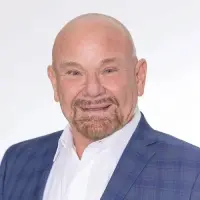
Randy Gomez
Chairman & CEO
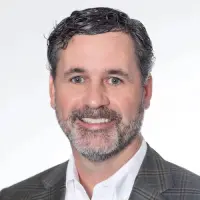
Blain Houston
CFO

Randal Gomez
VP of Business Development

Jacob Wood, Dr.
Medical Director
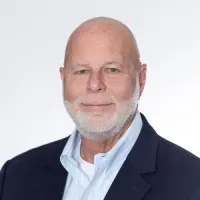
Edward Antherson
Diector of Admissions
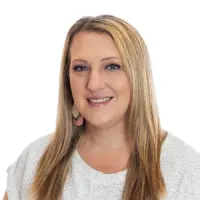
Savannah Smith, RAC
Assistant Director of Eduction
Accreditations

The Commission on Accreditation of Rehabilitation Facilities (CARF) is a non-profit organization that specifically accredits rehab organizations. Founded in 1966, CARF's, mission is to help service providers like rehab facilities maintain high standards of care.
CARF Accreditation: Yes
Contact Information
3015 LA-956
Ethel, LA 70730














